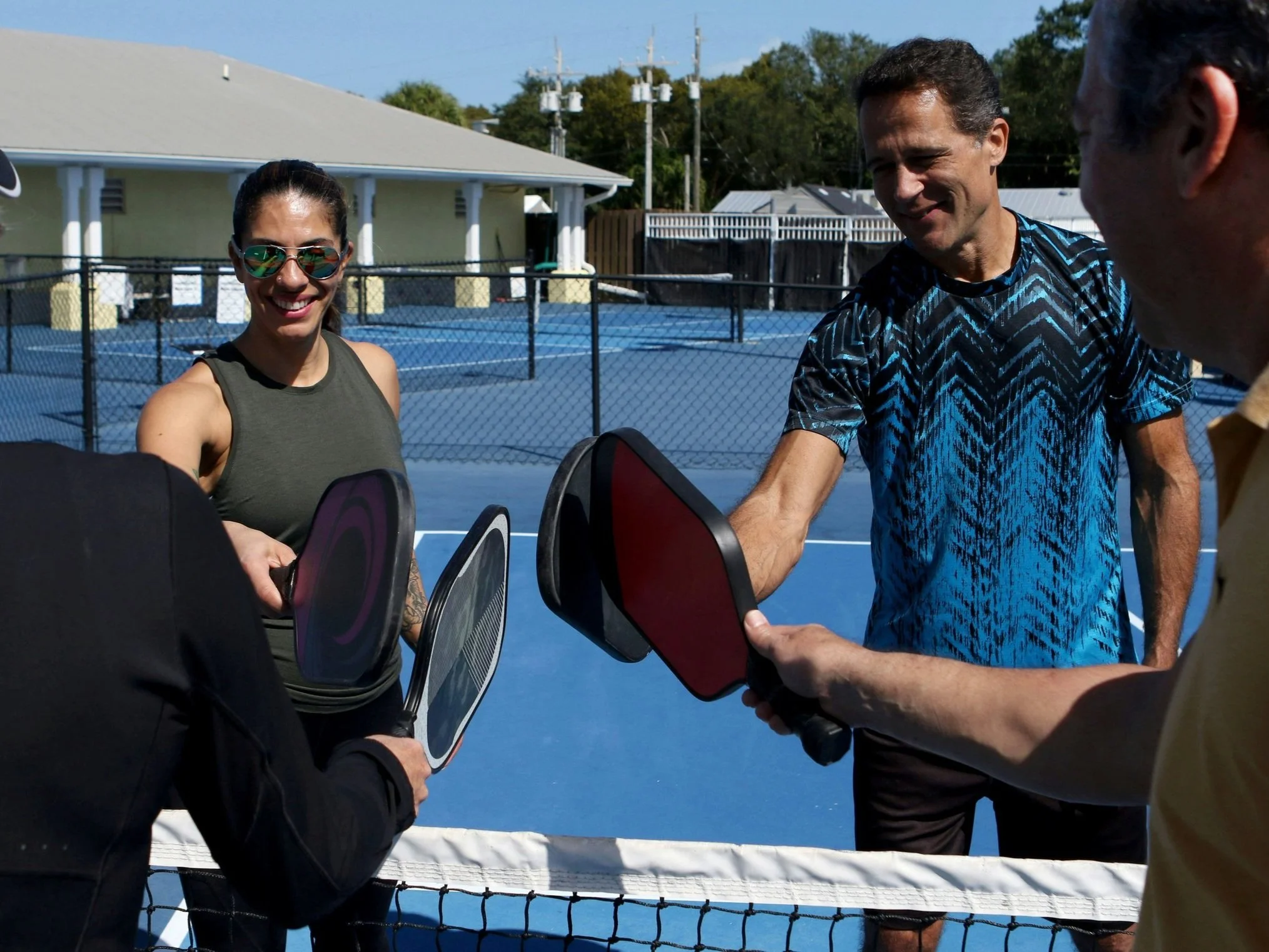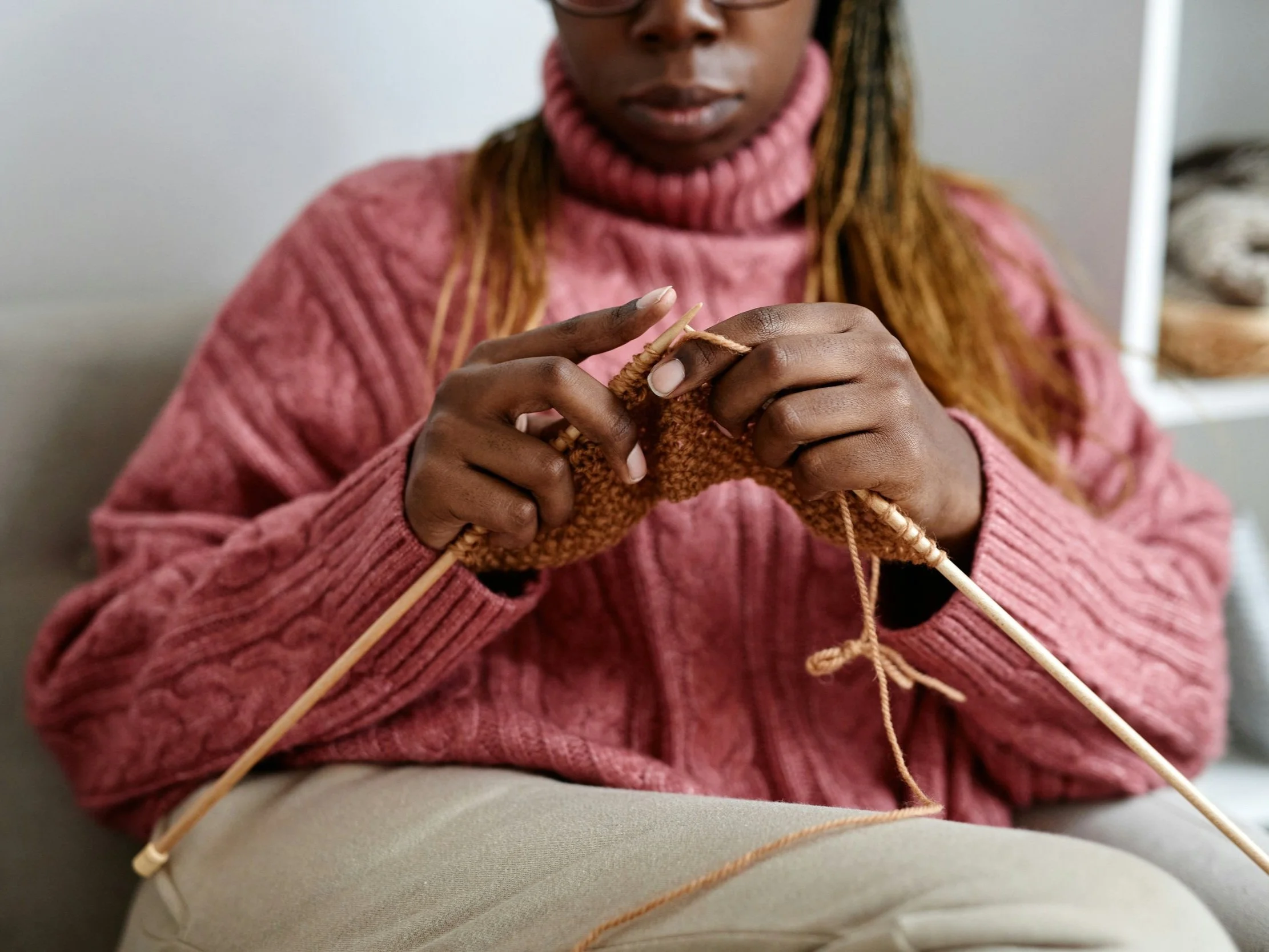Why Hobbies Are a Secret Weapon for Your Health
I’ve always been a hobby person.
Most recently, I got into coloring with alcohol markers. I purchased a set of markers and a coloring book on Amazon, and the next thing I knew, I had 150 markers, 8 coloring books, white gel pens for highlighting, and a new basket to store it all in.
Before that it was knitting, then sewing, needlepoint, felting, cooking, gardening, reading, hiking, video games on the Nintendo switch, and the list goes on.
My husband teases me relentlessly for how often I pick up a new hobby and become completely invested overnight.
But did you know there is scientific evidence to support how hobbies actually improve your physical health, your mental health, and even help with weight loss?
Yes, really!
Our lives are increasingly busy. We are saturated with work obligations, family life, socializing, and trying our best to maintain our health whenever we find the time.
But when was the last time you got lost in something, just for the fun of it?
Hobbies are more than just entertainment, they give you purpose, support your mental health and cognition, support your physical wellbeing, and even help you stay on track when it comes to your health goals.
And most importantly, hobbies help to remind you that life should be fun!
Explore how hobbies can help support your health and wellbeing, and how to find a new hobby that speaks to your interests.
The Mental Health Boost: From Stress Relief to Improving Cognition
Hobbies are good for your brain. From boosting your mood, promoting relaxation, to learning new skills, and even preventing dementia, hobbies can make a huge impact on your overall wellbeing.
Let’s talk about all the ways finding a hobby will give you the ultimate mental health boost.
Emotional Regulation
Engaging in activities that you enjoy gives you a boost of serotonin and dopamine, the hormones that promote happiness and relaxation, and reduces cortisol, the hormone responsible for stress.
More repetitive hobbies that require focus, like knitting, coloring, or gardening, lower your stress levels. Even more, physical activities such as hiking, dancing, or even walking, give you a boost of endorphins and promote those positive emotions.
Learning a new skill makes you feel accomplished. Hobbies can also help to give you a sense of identity or purpose, especially for those who feel defined by work, parenting, or health challenges.
You deserve to feel like your own person, outside of these parameters, and doing things that fill your own cup actually helps you to show up better in other areas of your life.
Preventing dementia
Young people are often challenged intellectually, just by nature of where they are in life. Whether you are in school, starting a new job, traveling, or becoming a parent, you are doing a lot of growing.
These novel experiences help you gain new skills, learn new things, and you tend to be more social. As people age, they tend to become more ingrained in routine, having fewer novel experiences.
Having hobbies, especially ones that involve creativity, challenge your brain, or include social interaction, can help prevent or delay the onset of dementia symptoms.
There are tons of hobbies that are mentally stimulating, so there is something for every interest.
Some examples include artistic hobbies, playing music, social activities, reading, playing computer games, or doing puzzles.
Don’t wait to get started, either, even if you’re still young! Starting to build these cognitive habits earlier helps to strengthen your brain but also solidifies these habits, making it easier to keep it up as you age.
Physical Benefits (Whether You’re Sitting or Moving!)
Hobbies improve more than just your mental health. Whether you are sitting still or moving around, a hobby can improve your health from the inside, out!
From bloodwork to the scale, certain hobbies can and do improve your physical health. Let’s talk about it.
Improved Health makers
Hobbies can help you relax. There are obvious mental benefits to relaxation, but did you know that these improvements can also show up in your next physical exam?
Relaxing activities including things like coloring, gardening, or knitting, require mental focus and repetitive movements. These things combined can actually lower your heart rate and blood pressure.
Reducing stress lowers inflammation in your body, which means your immune system doesn’t have to work as hard.
These changes help to improve your immune function, so you may find you get ill less often and recover faster.
Better sleep
Stressing less also helps you sleep more soundly at night. Cortisol can be disruptive to the sleep-wake cycle, and hobbies help your body reduce cortisol and promote relaxation.
Spending time on activities that are mentally stimulating can also help to promote restful sleep. Have you ever taken a particularly hard test or had to really focus at work and gone home as exhausted as if you had ran a marathon?
This is because working your brain during the day can help you to sleep better at night.
Finally, engaging in relaxing hobbies in the evening can help prevent you from scrolling on your phone or watching television. The blue light from these screens can disrupt melatonin production and your sleep.
Try switching out your nightly scroll for an offline hobby and see the benefits.
Natural movement
Vigorous physical exercise is not the only way to burn calories and maintain a healthy weight. While exercise is important, it’s equally important to promote natural movement throughout the day.
Most of the calories you burn each day are burned when your body is “at rest.” In fact, Non-Exercise Activity Thermogenesis (NEAT), or the calories you burn just going through your daily routine, account for up to 50% of your daily calorie expenditure.
Dancing, walking, gardening, hiking, bird watching, playing with your pet, and recreational sports are all hobbies that get you moving around. What’s more, is doing these activities with a friend or a group promotes social connection— even better!
You are much more likely to do an activity consistently if it’s one you really love, so if you struggle to make it to the gym, try a hobby instead.
Body confidence
Trying new hobbies can help you to gain new skills, make new friends and connections, and gives you a sense of accomplishment.
One overlooked benefit of trying new activities, especially physical ones, is that they can help you to reconnect with your body and create positive associations with physical activity.
You don’t have to be the best at something, and indeed as you continue to practice, you will get better. This natural progression promotes confidence and emotional resilience.
Sometimes exercise for weight loss becomes tied to insecurities or a desire to change yourself, while hobbies can have the opposite effect, making you more confident and helping you appreciate what your body can do.
Hobbies Help You Stay on Track with Health Goals
Many people who are struggling with their mental health, whether they are anxious, depressed, stressed, or even simply bored, turn to emotional eating for comfort.
One way to start to break this habit is by finding things that fill your time and fulfill you spiritually. Pour this energy into something that feels productive and gives you energy and you will feel better for it.
Hobbies that require focus and intention can also promote mindfulness, which has ripple effects in other areas of your life, including how you eat.
Finally, having hobbies promotes balance. Hobbies can help you to find joy and take time to rest, giving you a break from stressing about work or tracking your calories and workouts, and gives you time to simply be yourself.
In this way, hobbies can help you to prevent burnout and perfectionism, reminding you there is more to life than just the hard stuff.
Ideas to Spark Your Hobby Hunt
Hobbies should bring you joy, give you purpose, and help you relax. If you are wondering where to start, think about what areas in your life are lacking.
Are you overly stressed? Are you bored? Do you want to be more active? Are you lacking social connection?
If you answered yes to any of these questions, here are some ideas:
To relax and recharge: journal, knit, puzzle, color, or bird watch.
To stimulate your brain: learn a language, do puzzle games, or read.
To get creative: cook, paint, sculpt, do photography, write, make jewelry, woodwork, or scrapbook.
To be more active: dance, hike, do yoga, walk, play pickleball, swim, or join a recreational sports team.
To form or strengthen social connections: join a team, take a cooking class, volunteer, join a book club, or see live music.
Maybe you are interested in more than one thing. That’s great! If you’re anything like me, when you start trying new things, you might find that you become inspired to try others.
You don’t have to be a savant, dedicating all your time to one hobby (unless that’s what you want) so don’t be afraid to try new things. And for that matter, if you try it and hate it, do something else!
Health Is More Than Your Weight
We focus a lot on weight loss, because that’s what we do here at TeleHealthNP. But your weight is not the only important aspect of your health.
Health is holistic, and nurturing all of these different parts is important to having a well rounded lifestyle.
Hobbies are a part of this journey, because they give you purpose and most importantly, bring some joy and play time to your life.
We challenge you to try one new thing this week, whether it’s something in this post, or if it’s something we didn’t even think to mention. Maybe it’s that one thing you have always wanted to try but just never made the time.
Take this first step towards building a healthy routine that you actually want to show up for.
References:



